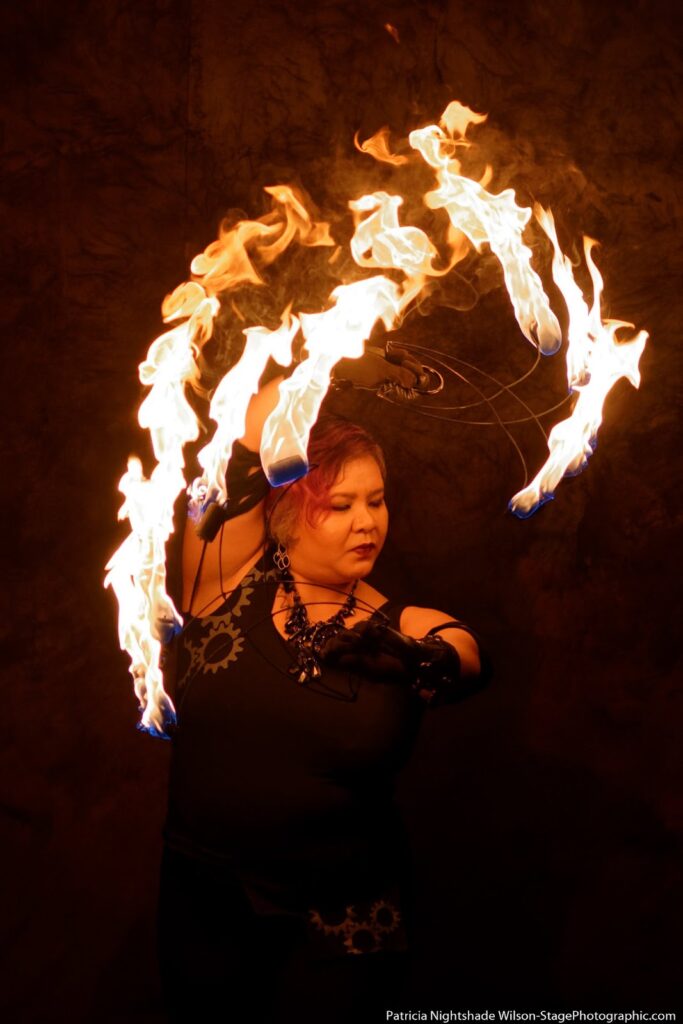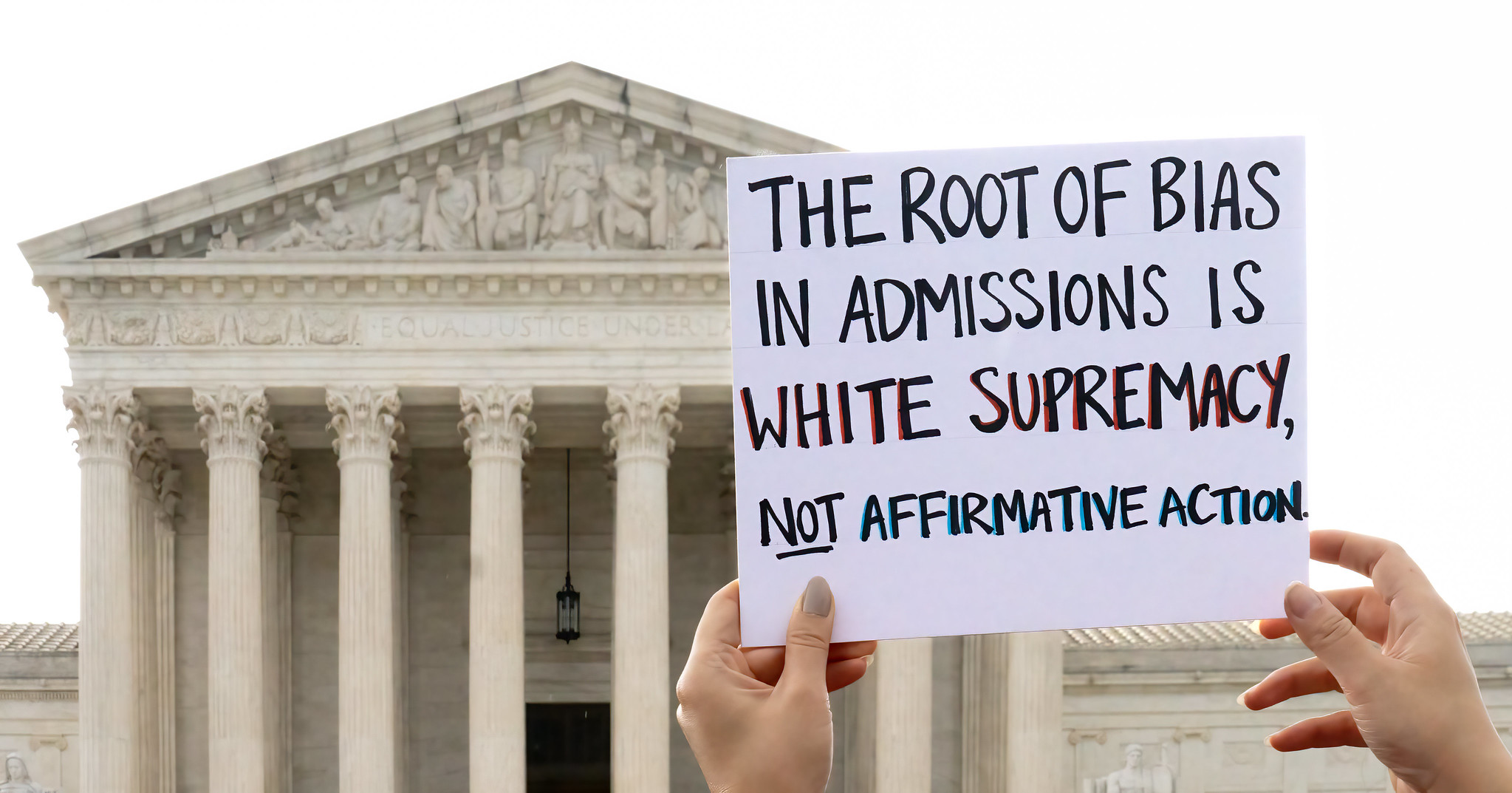The recent SCOTUS decisions to eliminate affirmative action in college admissions in favor of a so-called “colorblind” approach was hardly surprising. The right-wing majority has long promoted the lie that affirmative action discounts a person’s skills and potential and focuses only on racial identity as the deciding factor in college admissions. In reality, their preferred “colorblind” approach effectively ignores the role that race plays in shaping an applicant’s qualifications. But now that this has become the law of the land, advocates are readying themselves for how this decision will affect other critical areas where inequity persists. Meanwhile, Asian Americans must reckon with the fact that this latest blow of injustice was made in our name. Again.
In 1996, some Asian American groups – primarily but not exclusively made up of Chinese Americans – organized to support California’s Prop 209 banning affirmative action in public education, employment, and contracting. As opponents of affirmative action, they were in the minority among Asian Americans; but they were well-organized, vocal, and most critically, influential in pressuring several Asian American legislators to reverse their initial resistance to the legislation’s passage. As a result, enrollment of Black and Latinx students in California colleges and universities dropped by 40%, with long term ramifications for their earning potential and professional development. California schools are still unable to meet their student body diversity goals over 25 years later, and notably, the loss of affirmative action in the state didn’t correlate to any long term gains for white women or Asian Americans. The resulting friction and suspicion between Asian Americans and other BIPOC strained solidarity among communities that otherwise have had a long history of fighting together for common cause.
It’s still true that on the whole, most Asian Americans support affirmative action and acknowledge how race-conscious practices have historically been a boon for our communities. Advocates and analysts have written countless poignant, well-sourced arguments pointing out why affirmative action is still critical to achieving much-needed equity in all college communities and laboriously debunking the constant stream of disinformation around who actually benefits with its removal. And it is vital for mainstream media to point out that while the lawsuit – brought and bankrolled by white anti-civil rights conservative Ed Blum – was ostensibly on behalf of an anonymous group of Asian Americans, no Asian American students actually testified that they had experienced discrimination in either the Harvard or University of North Carolina cases.
But there’s a reason why people fail to challenge the faulty narrative that most Asian Americans support these lawsuits, or that we’re “divided” on affirmative action: the pernicious myth that policies like affirmative action come at the expense of Asian Americans is still slowly but surely worming its way into the narratives that tell us how Asians fit into American life. And at the heart of that myth is the anti-Blackness underpinning many Asian Americans’ discomfort over race-conscious equity initiatives that reactionaries like Blum are attempting to leverage to the detriment of us all.
Upton Sinclair once noted that it’s hard to make a person understand something if their salary depends on them not understanding it – a fact that conservatives are well aware of. It’s why they’ve been desperate to tie the real discrimination Asian Americans face to progressive efforts to dismantle inequitable policies that hurt Black, Indigenous, and other POC – including Asian Americans – by trumpeting model minority stereotypes and the myth of meritocracy. They’ve been targeting our communities with this kind of disinformation since the beginning of the Civil Rights Movement. The Harvard and UNC lawsuits are only the latest in a long line of blatant attempts by conservatives to control the narratives that shape our understanding of what it means to be Asian American. It’s crucial that we recognize how when conservatives claim that their “colorblind” ideology is the pathway to success and acceptance in America, they are really attempting to normalize and justify our complicity with anti-Blackness.
Whether it’s ignoring how standardized tests are in no way objective measurements of student merit; believing that high test scores entitle you to entry at Harvard despite the fact those very same tests were created to keep non-white people like Asian Americans out of higher education; assuming that a Black, Latinx, Indigenous, or other non-Asian POC who got into an Ivy League school “stole” your spot because they couldn’t possibly be more qualified; leaning into the idea that America is a meritocracy despite how harmful that myth is; or insisting that Black people owe their college admittance to affirmative action when in fact it’s white women who’ve benefited the most from those policies – at the end of the day, these narratives count on our fear of being subjected to the same discrimination that Black people already face, obscuring their achievements, overlooking their potential, and devaluing their right to life, liberty, and the pursuit of happiness, and their very humanity. Allowing Black communities to suffer these ongoing injustices while we protect ourselves instead of fighting for radical change that will free us all is the height of cowardice and a betrayal of our own history.
To give into that fear is to uphold the status quo in which the select few thrive at the expense of all of us. It is to work against real, and mutual, liberation, and to actively embrace anti-Blackness as the cost of living in America. It means to align with whiteness, regardless of who gets harmed, in exchange for any tenuous measure of security. It means to allow racist wealthy white men like Blum to control the narrative about what being Asian in America means, framing our struggle for equity as one in which our antagonists are Black, Latinx, Indigenous, and other non-Asian POC, not white-dominated racist hierarchies and their beneficiaries.
It means to fully assimilate ourselves into America by irrevocably making Asian American identity synonymous with upholding white supremacy.
To give into that fear is to uphold the status quo in which the select few thrive at the expense of all of us. It is to work against real, and mutual, liberation, and to actively embrace anti-Blackness as the cost of living in America. It means to align with whiteness, regardless of who gets harmed, in exchange for any tenuous measure of security.
…It means to fully assimilate ourselves into America by irrevocably making Asian American identity synonymous with upholding white supremacy.
Even were that not itself problematic, let’s not also forget: Asian and Pacific America is not a monolith, and many within our communities – particularly Southeast Asians, Pacific Islanders, Native Hawaiians, refugees, low income families, and undocumented immigrants – already face considerable barriers to higher education beyond perfect test scores and grades. Eliminating affirmative action certainly won’t improve their chances to get a spot at an elite institution like Harvard. No matter how loudly proponents might claim otherwise, these lawsuits weren’t “a win” for us by any stretch, save for the handful of Asian Americans with enough resources to insulate them from the inevitable fallout of affirmative action’s end.
Many in our communities have responded by clamoring for more education that includes Asian Americans as active and vocal proponents in the fight for racial justice, and for more Asian Americans to be elected into political office, but being seen in the annals of history and having access to the halls of power isn’t enough. We must be clear about what, exactly, we intend to do with that visibility and power once we attain it. As Mikki Kendall notes in her book Hood Feminism, our advocacy and activism can’t be just about empowering our communities – we have to know just what it is we’re empowering ourselves to do. Do we want to merely survive within the confines of oppressive, racist systems, or are we enabling ourselves to dismantle those systems and rebuild an equitable world in which we can all thrive? Are we only acquiring power to control our own stories, or are we also cultivating the awareness and understanding we need to ensure that our narratives are rooted in equity, mutual support, and justice?
There’s one thing supporters of the Harvard and UNC lawsuits got right: we are entering a new chapter in Asian American history. If we don’t want that chapter to be ghostwritten by Blum and his ilk, we have to actively deny them any opportunity to tie their regressive, racist, anti-Black agenda to Asian American identity. Our ability to succeed and thrive despite racist systems of power has never come from chasing white acceptance, but it has always come from joining hands with Black, Latinx, and other marginalized communities.
That is the true story of being Asian in America and if we want it to be told, we have to fight to protect it.

Michi Trota is a writer, editor, speaker, and fire performer who is a five-time Hugo Award winner, British Fantasy Award winner, and Ignyte Award finalist. She is a former Editor-in-Chief of Science Fiction & Fantasy Writers Association (SFWA), and the first Filipina Hugo Award winner. Her publications include the WisCon Chronicles Vol. 12 co-edited with Isabel Schechter (Aqueduct Press) and the Wing Luke Museum 2018-19 exhibit Worlds Beyond Here: Expanding the Universe of APA Science Fiction. She is also a member of the Filipino Young Leaders Program 2022 Immersion cohort and performs with Raks Geek/Raks Inferno Fire+Bellydance troupe. She lives with her spouse and two cats in Chicago, where she is writing a book about the narratives that shape AAPI identity.
Header photo credit: Flickr / Victoria Pickering
Learn more about Reappropriate’s guest writing program and submit your work here.

